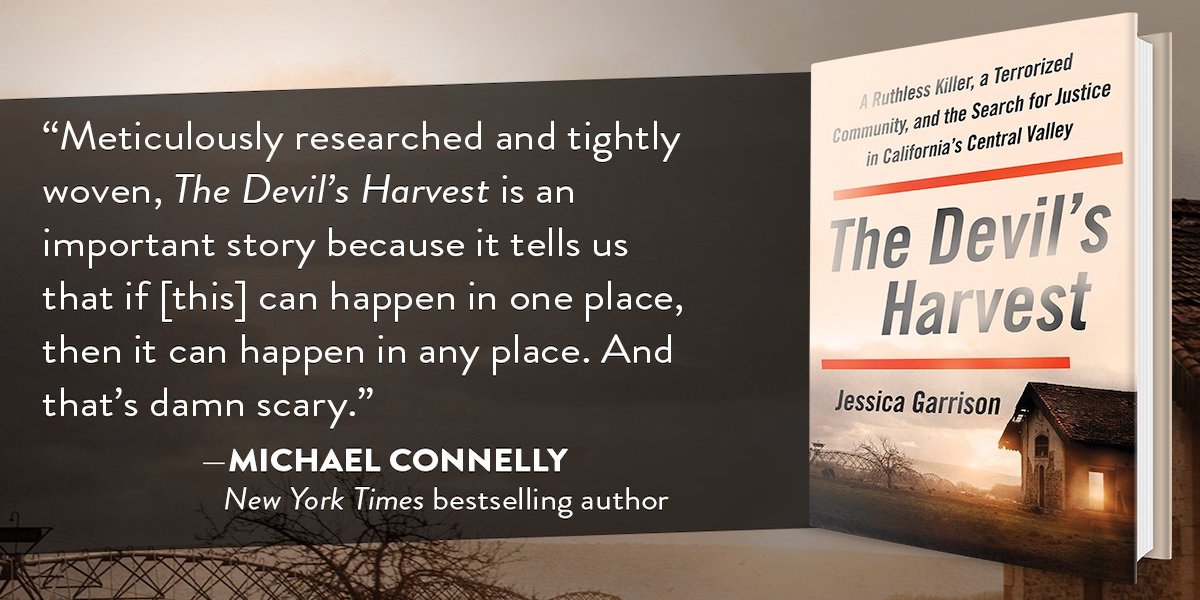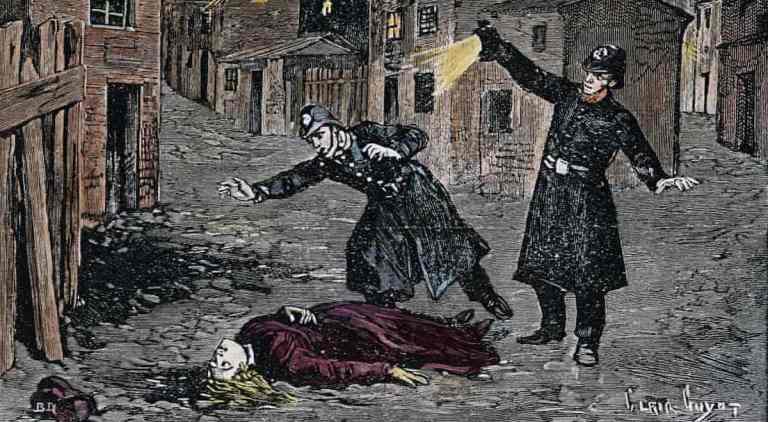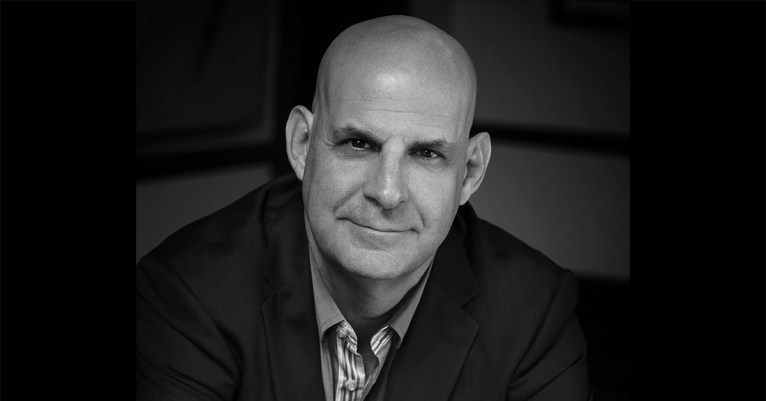Read The Excerpt: The Devil’s Harvest
Chapter One
Jose Martinez woke up on June 13, 1980, intent on transporting himself from the crime and poverty of his childhood into a new and noble future. It was his eighteenth birthday, and he was going to mark it by joining the US Marines. Martinez had dreamed of being a soldier since he was a little boy, idolizing his uncles who had fought for the United States overseas. The discipline and brotherhood of the armed forces appealed to him, not to mention the status and security of being part of the greatest military in the world. To shoot and kill for country and glory—what could be better? He’d spent countless hours practicing for it. Roaming the banks of the Deer Creek ditch near his stepfather’s ranch, he blasted targets, rabbits, and raccoons with the gun his stepdad had given him. He was an excellent shot. He was also a fierce and brutal fighter. Martinez had a gentle, joking disposition, with a mischievous smile that flashed easily and often across his face, lighting up his brown eyes. But his temper was vicious, especially if he felt disrespected. All this, he figured, would make him a perfect marine.
“You should come with me,” Martinez said to his wife. She agreed, as he knew she would.2 They’d been together since he was fifteen years old, around the time he had dropped out of school to take a larger role in his stepfather’s smuggling operations running heroin across the Mexican border and up through California. Their courtship had begun—according to him; his first wife has not provided her account—when she came from Mexico to work for his mother. They dated for a while, and then “one day I told her, if she really loves me, she must elope with me.” He put her in his car and refused to let her out. Then he took her to Disneyland for their honeymoon. His wife made him feel secure and happy. He wanted her—and their toddler son—to witness this important moment. After all, the whole family was embarking on this adventure.
When his son had been born, Martinez had held the tiny boy up, marveling at this creature he had created, and kissed him over and over again. “Son, don’t be proud of me,” he whispered. “I’m a real criminal and a drug dealer.”
But becoming a marine was noble.
Martinez and his family piled into his brand-new black Ford LTD—he’d paid for it in cash because the drug business was that good—and drove forty-five minutes south from their home in Tulare County to the US Marine recruitment center in Bakersfield.
Martinez walked in and found a recruiter. “I’m here to sign up,” he said, as his wife stood beside him with their son in her arms. “I know how to shoot real good.”
He neglected to mention something else that he thought would make him a good marine: he knew he had the nerve to kill when necessary. He had already done it once. When Martinez was sixteen, his older half sister had been raped and murdered, her body dumped on the banks of the Salton Sea, an inland desert lake in Southern California. A few weeks after the funeral, Martinez left his wife and the rest of his extended family, all reeling from grief, and drove four hours south. He brought with him a friend and an M1 carbine with a thirty-round clip and soon found the house where his sister had last been seen. Three men were inside, laughing and playing cards. “All 3 motherfuckers die,” he wrote in his memoir. It was one of his proudest moments. He had taken the powerlessness and rage of his grief and—bang-bang-bang— squeezing the trigger made him feel magically better: powerful, able to protect his family. “It feels good to take vengeance,” he explained. “It feels good to kill and the heart relaxes a bit.”
Obviously, he couldn’t tell the recruiter about this. Instead, he said he was sure he had what it took.
Martinez had thought about what life in the marines would be like. Ronald Reagan, California’s former governor, was just weeks away from clinching the Republican nomination for president in a campaign staked in part on restoring glory to the armed forces. In the farmworker communities of the San Joaquin Valley where Martinez had grown up, some people still bitterly recalled how Reagan had sided with growers against farmworkers during the grape strike. But Martinez didn’t pay much attention to politics. He wanted to be a fighter. Invulnerable. Fearsome. Respected. All the things farmworkers were not allowed to be. Maybe he would join the Special Forces. He might even be stationed at Camp Pendleton, the marine base near San Diego. That would be nice for his family, to live by the beach while he was overseas fighting for his country.
It would be a real change from where they were living at the moment: Earlimart, with a population of about forty-five hundred that could swell during the harvest, was one of the poorest of the poor farmworker communities that dotted this southern end of the valley.
Martinez’s grandmother had been the first in the family to settle here, leaving Mexico after her husband was shot dead in a dispute over a card game in the mountains of Durango. Working in the fields, she met and married a Filipino American farmworker, which enabled her and her Mexican-born children to become legal US residents and eventually citizens. Citizenship offered some small protections. You could not be deported if you complained about not being paid, for example. But farmwork was still backbreaking, often exploitive work, as sixteen-year-old Loreto, Martinez’s mother, learned when she joined his grandmother in the fields in 1959. Farmworkers were excluded from virtually all health, safety, and labor laws. They were paid as little as the market allowed, and they could be fired at will. There were no bathrooms and no clean drinking water in the fields. The bosses often treated the workers with contempt, like just another easily replaceable farm implement.
It had always been this way, no matter who picked the crops. Before Mexicans became the dominant workers in the fields, there had been waves of Chinese, Japanese, and Filipino farmworkers. Only when many farmworkers had been white, during the Great Depression, when hundreds of thousands of “Okies” fled the Dust Bowl, did their plight garner national attention.
Martinez’s mother married a man from her home village, a relative on her mother’s side who already had two girls from a first marriage. In short order, Loreto and her much older husband built a family. Martinez had an older sister born in 1960. He came along in 1962, and two more brothers and two more sisters followed.
Sometimes, farmworkers sent their American-born children to Mexico to be cared for by relatives while they worked in the fields. When Jose Martinez was about six, he and four siblings were installed in Cosalá, Sinaloa, a cobblestoned town of pastel buildings and mango trees high in the Sierra Madre, where his parents had family. The children landed there just as the area was becoming a center of the drug world. By the mid-1970s, about 90 percent of the heroin sold in the United States came from Mexico’s Sierra Madre.5 The Martinez children had a front-row seat as the business—and its attendant violence and corruption— began to boom.
By the time the siblings returned to California around 1972, their parents were on the verge of divorce. Their mother, Loreto, soon after married a man named Pedro Fernandez. Their new stepfather was much better off than their father: he was not a farm- worker; he was a farm labor contractor, hiring crews for farmers who needed crops planted, tended, or picked. He was also a drug smuggler, one of the biggest in the San Joaquin Valley. The family’s new home, on a ranch on the outskirts of Earlimart, was the center of Fernandez’s massive smuggling operation, frequented by many who would go on to play prominent roles in the drug trade on both sides of the border for years to come.
Meanwhile, in the vineyards that rolled out in every direction just beyond the ranch, another larger-than-life story was taking shape. Cesar Chavez and Dolores Huerta were leading farm- workers in one of the greatest civil rights movements of the twentieth century: the epic battle to organize a farmworkers union. Chavez lived and worked out of a house in Delano just a few miles down the road from Earlimart. Born in Arizona to Mexican immigrants, he had worked the migrant farmworker circuit as a child after his family lost their land. After a decade as a community organizer, Chavez had moved to the valley in 1962, just a few years after Martinez’s mother, and he and Huerta had set out to show its poorest workers they could take on its most powerful industry. In 1965, when Filipino grape workers like Martinez’s step-grandfather went on strike, the fledgling union of Mexican Americans joined the battle. Over the next few years, the United Farm Workers transformed the strike from a local labor dispute into a global cause. Political icons like Robert Kennedy, celebrities like Joan Baez, and legions of other volunteers streamed down Highway 99, through Earlimart into Delano, to support and cover la causa. In 1965, before the strike, farmworkers earned, on average, less than $1.50 an hour. After a five-year strike and boycott, Chavez’s movement brought increased pay, job protections, and—just as crucial—a sense of dignity and power to Mexicans and Mexican Americans across the valley and beyond.
The change was not always easy, or always peaceful. Growers, threatened by the demands that were upending the economic and social order, used every available power to quash the rebellion, including their influence with law enforcement. With little or no provocation, the Tulare and Kern County Sheriff’s Departments marched into the fields with their batons drawn and squared off against workers in brutal clashes.
Martinez saw Chavez around Delano as a child and admired him. He was offended by the violence the police had unleashed on the farmworkers, most of whom, he knew, worked from dawn to dusk to put food on the table. But whatever their sympathies, the Fernandez-Martinez clan did not join Chavez’s United Farm Workers of America. After all, they were running a criminal enterprise—smuggling not just drugs but also undocumented immigrants across the border. They tried to stay out of the fray.
Eventually, the law caught up with them anyway. One morning in the summer of 1977, a drug task force descended. Police officers emerged from the grape vineyards and invaded the property with their guns drawn. Before long they had found several stashed guns and three kilos of heroin, worth approximately $2.5 million in 1977 dollars, hidden in a bag of dog food. This raid—prompted, some said, by a tip from a person with ties to a rival drug operation— resulted in one of the largest heroin seizures to date in Central Valley history.9 Martinez’s stepfather wound up at Lompoc federal prison, and Martinez, then fifteen, wound up with a larger role in the family business.
Obviously, Martinez wasn’t going to mention this to the military recruiter either.
But it turned out the recruiter had a few questions in a different, equally unwelcome arena. To start: Did Martinez have a high school diploma?
He did not. Martinez’s mother—whose own chance at an education had been derailed by pregnancy at a young age— considered schooling one of America’s greatest gifts. Some of Martinez’s younger siblings excelled in school. But Martinez had moved so many times in his childhood, from school in Mexico and then back to a four-room schoolhouse that sat in the fields not far from Earlimart, that his education had been disrupted. On top of all the skipped days and switching back and forth between English and Spanish, he often had to miss school to make drug runs for his stepfather. He missed his middle school graduation to pick up his very first heroin shipment at a Greyhound bus station.
There was also the not insignificant matter of his temper. He fought. On the school bus. On campus. Defending his sisters’ honor or because someone pissed him off. Eventually he got suspended, then dropped out. He was only fourteen or fifteen, too young to drive legally. But far from urging him to complete his education, his stepfather gave him a 1969 Ford Galaxy and a job delivering drugs.
Sitting there in the recruitment center in Bakersfield, Martinez told the recruiter the truth: I didn’t get past ninth grade, he admitted.
The recruiter delivered a crushing piece of news: he’d need a high school diploma or a GED before he could enlist. The recruiter might as well have said Martinez needed a graduate degree in astrophysics. With his stepfather locked up, his entire family was depending on him to keep the drug business going. Protecting and caring for his family was what Martinez had always done, from watching out for his younger siblings in Mexico to hunting down and killing those he believed responsible for his half sister’s death. Reality hit: he could never put that aside to study for some giant test he might not even pass so that he could join the military and leave his family.
Martinez registered for the marines anyway. “Just in case you need me,” he said. Then, he and his family drove straight to Sears, where he bought a book that the recruiter had mentioned about how to be a marine. Martinez read it so often that forty years later, he could still vividly recall bits of its instruction, such as the purpose and mechanics of simple bridge building.
Even so, he felt his dream of becoming a marine dying inside him. As he drove home, the flat monotony of the fields stretched out in every direction, and the disappointment pushed down on him. He and his wife had a second child fast on the way. He needed a new plan.
A few months later an opportunity presented itself. Martinez had a baby girl now, along with his little boy, and he was at home on the night of October 20, 1980, when a friend dropped by. Fall was finally coming. The grape harvest was winding down, the olives were coming in, and while the days were still hot, the nights brought a hint that winter would soon arrive.
While his wife and children slept in the bedroom, Martinez and his friend smoked a joint, and the friend confided his problem.
Back in Mexico, a man had raped his little sister. He needed help getting revenge. And he was willing to pay good money for it. Martinez said he didn’t ask any questions. Not who the alleged rapist was or how the friend could be so sure he was the one. Certainly not whether vigilante murder was the appropriate response. He thought of his own dead sister. He felt the rage rise up in him. And the possibilities.
Order Now
Melding the pacing and suspense of a true crime thriller with the rigor of top-notch investigative journalism, The Devil's Harvest follows award-winning reporter Jessica Garrison's relentless search for the truth as she traces the life of this assassin, the cops who were always a few steps behind him, and the families of his many victims. Drawing upon decades of case files, interrogation transcripts, on-the-ground reporting, and Martinez's chilling handwritten journals, The Devil's Harvest uses a gripping and often shocking narrative to dig into one of the most important moral questions haunting our politically divided nation today: Why do some deaths-and some lives-matter more than others?
By clicking 'Sign Up,' I acknowledge that I have read and agree to Hachette Book Group’s Privacy Policy and Terms of Use






